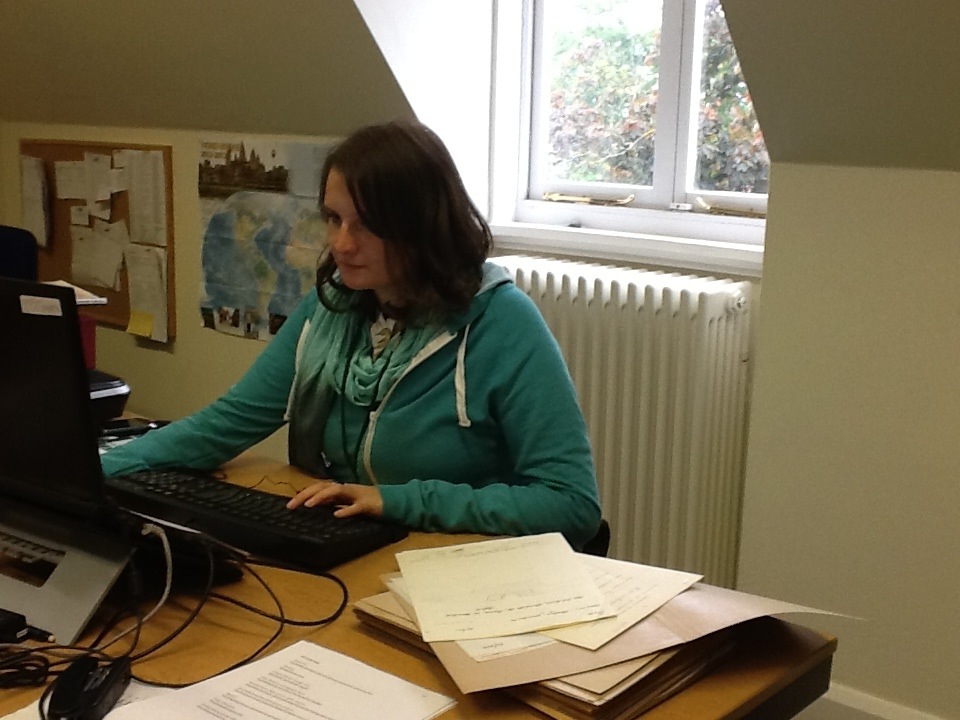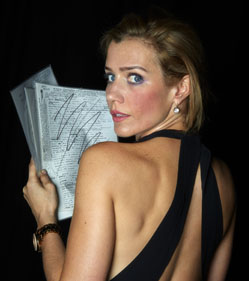This is the first of a blog series where I find out what former students and volunteers are doing in the museum, arts and heritage sector. First up is Laura, who has just come back to work for us!
What are you doing now?
I currently work at the Museum of English Rural Life as a project assistant on the ‘A Sense of Place’ project. I am responsible for updating the online database, making the collection more accessible for researchers and those who are unable to visit the museum. This project has a particular emphasis on place and location as a point of access.
How did your time at Reading prepare you for this line of work?
Museum Studies modules
I did the Museum Studies modules in every year of my undergraduate; mainly chosen because I enjoy museums and was curious as to what could be learnt about them. It was the museum studies module I did in my first year that made me realise museums could be the career for me. I distinctly remember being set tasks where we had to plan trails to engage audiences, which I really enjoyed. I learnt quickly that a lot more thought goes into museums and their displays than I had ever imagined. Having finished the module in the first term, I was keen to get volunteering throughout spring and summer.
Modules in following years included a task where you had to research a chosen object, update the accession file, write a label and design a temporary exhibition around it. The bit of the task I was surprised to find very difficult was being able to write a clear and concise label. I had to ensure it was accessible in terms of readability, reading age and appearance. As well make sure the language was active and engaging. I was had to avoid the temptation to write everything I knew about the object in an essay style piece of writing. This skill has proved very useful for writing object descriptions and labels. This task also allowed me to experience the online database, which I now use every day.
Voluntary
In my first year at Reading University I volunteered on various MERL events and workshops, eventually becoming a weekend tour guide. This gave me a good understanding of the collection, what has been collected and why. This basic understanding is now vital, as I work through the catalogue, ensuring I mention objects’ significance in relation to the collection. Additionally the experience of public speaking during my time as a tour guide really improved my confidence and ability to talk to the public, very important now for interacting with visitors and researchers.
Degree
I did a joint honours degree in Archaeology and History of Art and Architecture (2008-2011). Both involved many trips to museums, galleries and heritage sites, where I was able to look at exhibitions with my new ‘museum studies eyes’, assessing whether they were successful or not. My degree involved a lot of research, skills I now use when updating the catalogue. Furthermore, I came to Reading thinking I wanted to become the next Indiana Jones, a dream squashed by my first experience of practical archaeology at Silchester, where I discovered I can’t differentiate between types of soil and don’t do well knelt in the dirt in all weathers. However, whilst there I assisted on public open days which I really enjoyed.
Thesis
Having enjoyed all of the museums studies modules, and with plans to do a museum studies MA, I decided to choose a museum based thesis topic. Here I compared and contrasted three galleries within the Ashmolean Museum; a statue corridor near the entrance, modern art room on the top floor and the newly refurbished cast gallery. Here I analysed how visitors used the space and then tried to assess why they did so. This allowed me to do more in depth museum studies research and confirmed that I would really enjoy a museum studies masters.
Paid work
At the end of my first year I applied to be a Saturday gallery assistant at the Museum of English Rural Life, a position I stayed in throughout my undergrad. This enabled me to interact with the public, gauge what they enjoyed and why. I was also able to put my tour guiding stills into practice, week after week.
Additionally, with the realisation that I was not going to be a practical archaeologist, in my second year I decided to volunteer in the visitors cabin at Silchester, and in my third year was employed as the visitors manager. This involved organising school and group visits, public open days and a lot of tour guiding. I was also responsible for training students in giving guided tours. Again my time here helped develop my ability to interact and engage with the public.
What training/experience did you get after leaving Reading?
After leaving Reading I went straight on to complete a Museum Studies MA at the University of Leicester, which was recommended to me as the place to study if you wanted to go onto work in the museum industry. It was an amazing year with some really interesting modules, trips and tasks. Everything I learnt was clearly relevant to a career in museums. As part of the master I did an 8 week work placement at Falmouth Art Gallery, allowing me to experience a different kind on museum. Here I did a lot of extensive research and cataloguing, as well as marketing and learning.
If you could give just one piece of advice for current students what would it be?
My main piece of advice would be to take every opportunity offered to you, don’t waste the time you have at university- volunteer, gain skills and experience everything you can. Before my time at the Museum of English Rural Life, I was relatively shy, reluctant to interact with the public. But having been strongly encouraged to do the tour guiding course, by the volunteer coordinator at the time, I gained a lot of confidence and discovered my passion for engaging the public with arts and heritage. I was very lucky to gain so much voluntary experience, which led me to get 3 jobs while at university, a place on an MA course and my current position as project assistant. So get volunteering, not only will it look good on your CV, you may discover a hidden passion.





